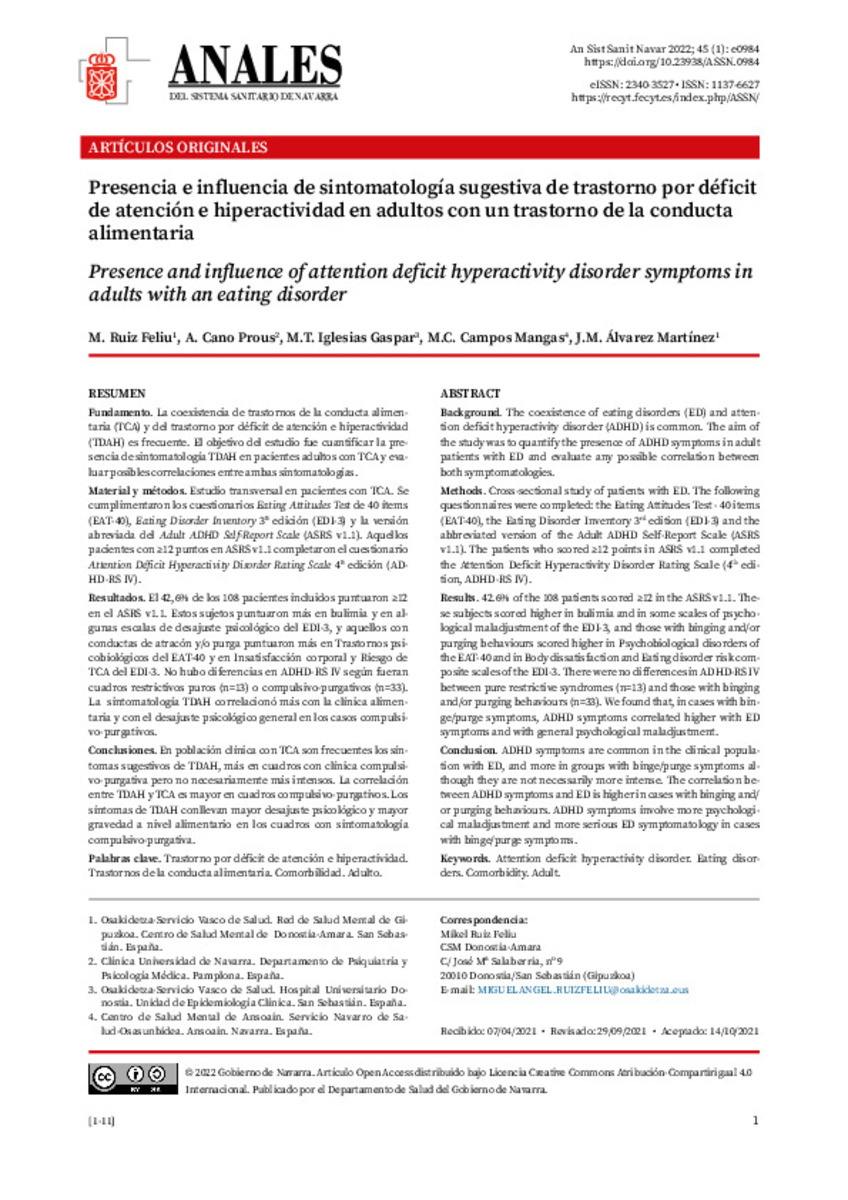Presencia e influencia de sintomatología sugestiva de trastorno por déficit de atención e hiperactividad en adultos con un trastorno de la conducta alimentaria
Other Titles:
Presence and influence of attention deficit hyperactivity disorder symptoms in adults with an eating disorder
Keywords:
Trastorno por déficit de atención e hiperactividad
Trastornos de la conducta alimentaria
Comorbilidad
Adulto
Attention deficit hyperactivity disorder
Eating disorder
Comorbidity
Adult
Citation:
Ruiz-Feliu, M. (M.); Cano-Prous, A. (Adrián); Iglesias-Gaspar, M.T. (M.T.); et al. "Presencia e influencia de sintomatología sugestiva de trastorno por déficit de atención e hiperactividad en adultos con un trastorno de la conducta alimentaria". Anales del sistema sanitario de Navarra. 45 (1), 2022, e0984
Statistics and impact
0 citas en

0 citas en

Items in Dadun are protected by copyright, with all rights reserved, unless otherwise indicated.









